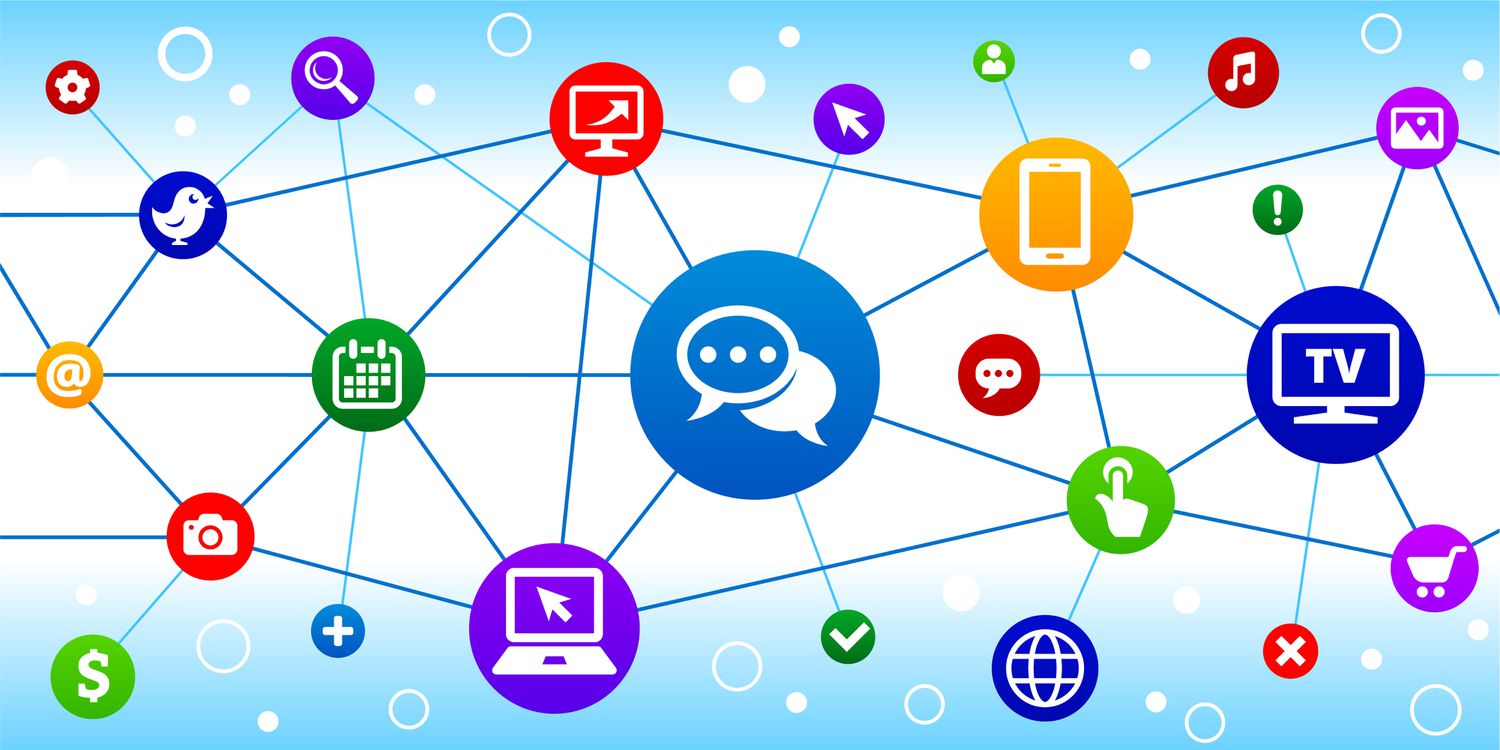Mass media communication has become an integral part of our daily lives, influencing everything from the news we receive to the entertainment we consume. However, have we considered the impact of mass media on education and learning? In this blog post, we will explore the influence of mass media communication on education and learning, examining how it affects our learning processes and the changes that have arisen in education as a result. By the end of this post, you should have a better understanding of the role mass media plays in our education.
To Explore This Topic Further More: benedict cusack
The Impact of Mass Media On Education
The influence of mass media communication on education and learning is undeniably significant. Mass media, including television, movies, radio, and digital platforms, has become an integral part of our lives. These forms of media aid in providing educational resources, support the teaching process, and influence academic performance.
Mass media plays a vital role in improving the learner’s knowledge by exposing them to diverse ideas and perspectives. Students can gain a better understanding of current events and global issues while developing critical thinking skills through exposure to various types of content. Additionally, mass media serves as a platform for education and learning by offering access to educational materials and resources that may be unavailable in a traditional classroom or textbook.
Mass media also has the potential to promote positive behavior changes, inspiring creativity and innovation among learners. It fosters dialogue within communities that might otherwise be impossible in traditional settings. By exposing people to different ideas from around the world, mass media encourages political participation and civic engagement while advancing public discourse on important topics such as climate change and economic inequality.
Research shows that mass media has a significant impact on learning motivation. When students are exposed to high-quality content, it increases their engagement with course material, leading to improved academic performance overall. Therefore, considering the role that Mass Media Communication plays in Education & Learning today, it is crucial for us all, including learners.
Understanding How Mass Media Shapes Knowledge and Learning
The role of mass media communication in education and learning is an essential one that warrants exploration. Mass media has garnered increasing influence in our world, making it crucial to comprehend the impact it can have on knowledge acquisition and learning outcomes. This article delves into the potential benefits of mass media communication for learners and assesses its impacts on student achievement.
Mass media has a direct impact on education and learning outcomes. It caters to information access via communication channels like television, radio, and the internet, enriching the educational experiences of students. It empowers learners to engage with societal trends and messages from various sources that help them grasp topics better.
However, negative aspects of mass media communication in education must be considered, such as corporate communication leading to biased views or opinions presented as facts. Such views could be internalized by learners without context or further investigation into their validity.
Living and Learning – The Report of the Provincial Committee on Aims and Objectives of Education in the Schools of Ontario underscores how mass media plays a vital role in education by providing access to new sources of knowledge beyond traditional methods. The report also delves into the ethical implications involved in using mass media for educational purposes, highlighting the need to be wary of exploitation or manipulation by external sources that could have detrimental effects on students’ mental health and wellbeing.
In conclusion, while mass media has enormous potential for enhancing educational experiences by providing instant access to vast amounts of information, educators must weigh the positive effects against potential risks associated with incorporating this medium into their teaching practices. Careful monitoring mechanisms should be put in place within schools to address ethical implications involved.
See More Article: The Importance of Mass Media Communication in Crisis Management
Mass Media Communication and Learning
Mass media communication can revolutionize education and learning in many ways. By leveraging the power of digital media, we can make teaching methods more effective and curriculum delivery more accessible. This article will explore how mass media communication can influence education and learning, as well as strategies for harnessing its power to enhance teaching.
First, it is important to understand the role of critical thinking when using mass media content in the classroom. As students become increasingly exposed to digital content at an early age, it is essential that they develop skills for assessing information sources and recognizing bias or false information. This ability is key when interpreting complex concepts from different perspectives through access to a variety of sources.
Mass media provides access to a wide range of educational materials from various sources and perspectives that might not be available in regular classrooms or libraries. Schools can use social media channels such as blogs, forums, web portals, etc., to transmit educational content quickly and efficiently with interactive resources that make learning more engaging and accessible from anywhere in the world. This can help bridge geographical gaps by providing distant learners with the resources they need without having to travel long distances just to attend classes or visit libraries or museums.
In addition to providing valuable educational materials from remote locations, mass media also allows for collaboration between different stakeholders such as teachers, students, and parents, which helps create an environment conducive to collaborative knowledge sharing and networking opportunities outside traditional classroom settings where peer-to-peer interactions are limited due to time constraints or physical distance between members of a particular cohort group. Furthermore, mass communication also offers unique opportunities for demonstrating the broad scope of education by taking advantage of multimedia formats such as videos which bring topics alive with vivid visuals and audio narration, making complex concepts easier to comprehend while keeping student engagement high throughout virtual lessons taught rather than in person under conventional settings.
Overall, mass media communication provides many benefits when used strategically in classrooms or other educational settings due to its powerful ability to reach remote areas with quality educational material while helping reinforce group dynamics through collaboration among peers. All contributing towards enhancing student engagement levels, thereby revolutionizing education and learning processes worldwide!
Harnessing the Power of Mass Media to Enhance Learning
The development of mass media communication has significantly impacted the classroom education. From news and radio to social media, mass media communication has revolutionized the way students learn and interact with their teachers. With this advancement, it is now possible to harness its power to enhance learning and provide students with access to a wide range of educational content.
One primary benefit of using mass media communication for education is that it can help increase students’ interest in learning. Educational programs broadcasted over radio and television can engage students at different levels with theories and concepts, helping them understand better than traditional methods such as books or lectures. Additionally, access to resources via digital platforms can provide students with insights that may lead them towards higher grades or motivate them further in their studies.
Mass media communication not only encompasses all types of news outlets but also includes blogs, forums, web portals, etc., providing easy access to educational content from anywhere at any time without geographical barriers. Moreover, modern electronic techniques allow for content delivery in an engaging manner such as visuals or audio, which often motivates learners more than traditional methods alone could.
However, there are some drawbacks associated with using mass media for education purposes. Sometimes distractions attributed to other forms of entertainment on these platforms can become an issue for maintaining focus during classes or studying sessions if not controlled properly by educators themselves. Careful selection and monitoring should be done before introducing this type of technology into a classroom setting, so as not to detract from student learning instead of promoting it further.
In conclusion, mass media communication provides numerous advantages when utilized properly; leveraging its potential can bring tremendous benefit towards improving understanding and knowledge growth among learners everywhere!
In a Nutshell
Mass media communication has the potential to revolutionize education and learning. It provides access to educational materials and resources which may not be available in traditional classroom settings while also allowing for collaboration between different stakeholders. It can also foster creativity and critical thinking skills among learners by exposing them to diverse ideas from around the world. While there are potential risks involved, such as biased views or opinions presented as facts, careful monitoring mechanisms should be put in place within schools to address ethical implications. By understanding the role of mass media communication in education and learning, we can leverage its power to enhance teaching practices and increase student engagement levels worldwide.



